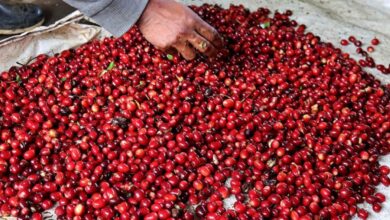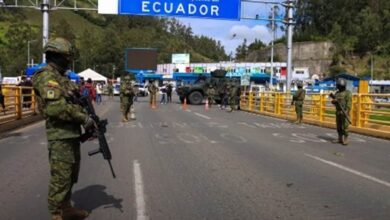Find out which are the companies that polluted the most in 2019
Break Free from Plastic published its annual report of the brands that contaminated the planet the most with plastic.

Pile of plastic beverage containers. / Photo: Pexels – Reference Image
LatinAmerican Post | Marcela Peñaloza
Listen to this article
Leer en español: ¿Cuáles son las 10 empresas que más contaminaron en 2019?
Plastic pollution is one of the biggest challenges facing the planet right now. That is why the NGO Break Free from Plastic conducted its second annual audit to determine which are the companies that most contaminate with this material. For 2019, the report, which was published in October this year, reveals that the three most polluting companies are:
1. Coca-cola
2. Nestlé
3. PepsiCo
These same three companies had held the same positions in 2018. According to the NGO's global coordinator, Von Hernández, “This report provides more evidence that corporations urgently need to do more to address the plastic pollution crisis they've created. Their continued reliance on single-use plastic packaging translates to pumping more throwaway plastic into the environment. Recycling is not going to solve this problem. Break Free From Plastic's nearly 1,800 member organizations are calling on corporations to urgently reduce their production of single-use plastic and find innovative solutions focused on alternative delivery systems that do not create pollution.”
In the other seven places are:
4. Mondelēz International
5. Unilever
6. Mars
7. P&G
8. Colgate-Palmolive
9. Phillip Morris
10. Perfetti Van Melle
The NGO press release explains that these globally recognized brands with a global presence have offered false solutions to the plastic crisis that they themselves have helped create. Relying on the global recycling system is an ineffective solution to the amount of single-use plastic that is produced and consumed daily.
The United States coordinator for the Global Alliance for Incinerator Alternatives (GAIA), Denise Patel, "The products and packaging that brands like Coca-Cola, Nestlé, and PepsiCo are churning out is turning our recycling system into garbage. China has effectively banned the import of the US and other exporting countries' 'recycling,' and other countries are following suit. Plastic is being burned in incinerators across the world, exposing communities to toxic pollution. We must continue to expose these real culprits of our plastic and recycling crisis."
Read also: Amazon forest regrowth much slower than previously thought
How is the audit performed?
On September 21, 2019, on World Cleaning Day, Break Free from Plastic organized cleanings around the world to collect waste and determine the most polluting brands. 484 audits were carried out worldwide, in 51 countries with the collaboration of 72,541 volunteers. During the day, 476,423 pieces of plastic were collected. According to the report, 43% of the total corresponded to a recognized trademark.
To identify the companies that pollute the most, "We determined the list of “Top Global Polluters” primarily based on the number of countries where these companies' brands were found to be polluting the environment, while also taking into account the number of plastics collected by brand / manufacturer. Together, these metrics capture both the distribution and depth of plastic pollution associated with companies and their brands,” explains the NGO.
What was the results?
You already know the top 10 of the companies, here we tell you the amount of plastic and the number of countries where they found the waste:
1. Coca-cola
- Plastic parts: 11,732
- Countries: 37
2. Nestlé
- Plastic parts: 4,846
- Countries: 31
3. PepsiCo
- Plastic parts: 3,362
- Countries: 28
4. Mondelēz International
- Plastic parts: 1,083
- Countries: 23
5. Unilever
- Plastic parts: 3,328
- Countries: 21
6. Mars
- Plastic parts: 543
- Countries: 20
7. P&G
- Plastic parts: 1,160
- Countries: 18
8. Colgate-Palmolive
- Plastic parts: 642
- Countries: 18
9. Phillip Morris
- Plastic parts: 2,239
- Countries: 17
10. Perfetti Van Melle
- Plastic parts: 1,090
- Countries: 17
Read also: How to build a more sustainable business
What are the most polluting companies in Latin America?
The study also determined the brands that most contaminated by continent. In the Latin American region, the top 3 is made up of:
1. PepsiCo
2. Coca-cola
3. Ferrero Group
The call made by Break Free from plastic is for companies to be clear about how they plan to deal with the plastic crisis. This will be achieved if companies transparently reveal how much plastic they use, setting reduction targets and revolutionizing and reinventing their production systems to avoid aggravating the crisis.
As consumers, we can be aware of what we buy. Let us opt for products that are packaged in non-plastic containers and that are of brands with clear and effective environmental policies.





